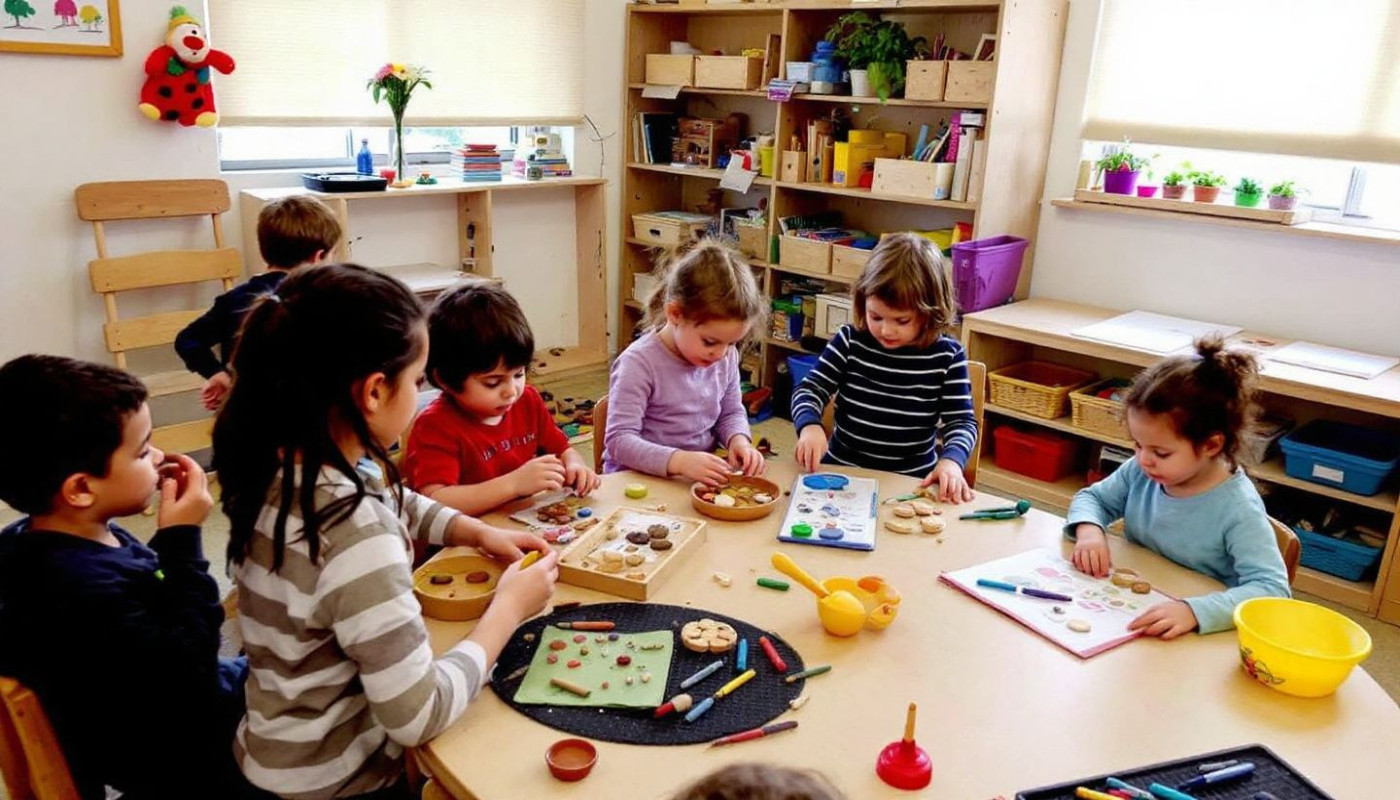Table of contents
Urban Montessori approaches are transforming the landscape of child development by blending time-tested educational philosophies with the unique dynamics of city living. These methods foster independence, creativity, and social awareness in young minds, adapting seamlessly to the fast-paced environments found in urban centers. Explore the following insights to discover how this innovative approach shapes well-rounded, resilient children ready to navigate the modern world.
Holistic learning environments
Urban Montessori settings foster holistic education by designing a prepared environment that encourages optimal child development across cognitive, emotional, and physical domains. Within these learning environments, classroom spaces are meticulously tailored to meet the developmental needs of each child, featuring accessible materials and versatile furniture that promote independence and movement. Urban Montessori classrooms often integrate natural elements such as indoor plants, ample natural light, and outdoor play spaces, which support sensory exploration and well-being, even within a city context. Self-directed learning is central in these environments, empowering children to choose activities based on their interests and pace, which enhances motivation, problem-solving abilities, and emotional resilience. By combining intentional classroom design, a connection to nature, and opportunities for self-driven exploration, urban Montessori approaches create nurturing and stimulating settings that elevate every aspect of the child's growth.
Fostering independence and autonomy
The Montessori method, especially in urban education environments, is distinguished by its structured approach to nurturing independence and child autonomy. Classrooms are intentionally designed to encourage students to make choices about their learning activities, promoting responsibility and the concept of freedom within limits. By empowering children to select tasks, manage their time, and engage in self-directed exploration, the method helps students build self-confidence and strengthens decision-making skills. This autonomy supports children in adapting to the complexities of city life, where resourcefulness and self-motivation are highly valued. Educators facilitate this process by providing guidance rather than direct instruction, ensuring that each child’s individual pace and interests shape their educational journey.
In urban settings, where diversity and fast-paced routines prevail, the Montessori method aligns seamlessly with the needs of city families seeking holistic and adaptable approaches to child development. As children consistently exercise independence and take ownership over their actions, they develop a robust sense of self-worth and accountability. These qualities are increasingly sought after in modern urban landscapes. For parents exploring alternatives in urban education, click to find out more about why Montessori schools are gaining popularity and how they uniquely support child growth in metropolitan areas.
Encouraging social collaboration
Urban Montessori classrooms are designed to nurture social skills and foster collaboration by embracing the diverse backgrounds of city populations. A foundational element is the use of mixed-age grouping, which brings together children at varying developmental stages within the same Montessori classroom. This structure encourages peer learning, as older students guide and support younger classmates, reinforcing their own understanding while modeling respectful communication. Urban diversity becomes an asset, offering daily opportunities for children to encounter and appreciate different perspectives, languages, and cultural traditions. Through carefully prepared environments and intentional group activities, Montessori educators help children develop empathy, negotiation skills, and a deep respect for differences, all while strengthening their ability to work collaboratively. These experiences prepare students to become adaptable, socially adept individuals who thrive in the interconnected realities of urban life.
Adapting to urban challenges
Urban challenges such as restricted outdoor environments, pervasive noise, and diverse populations require educational methods specifically designed to support children's growth in these unique contexts. The Montessori approach fosters urban adaptability by encouraging learners to engage with their immediate surroundings, transforming classrooms into vibrant microcosms of the larger city. Through carefully curated activities and materials, children develop resilience, learning to concentrate amid distractions and navigate sensory-rich environments with confidence. This method also makes full use of multicultural education, promoting respect and understanding among pupils from varied backgrounds. By threading real-world experiences and community engagement into daily lessons, the Montessori approach equips young minds to thrive in urban environments, cultivating both adaptability and a strong sense of belonging.
Nurturing lifelong learners
The urban Montessori approach lays a strong foundation for lifelong learning by prioritizing curiosity, exploration, and the cultivation of intrinsic motivation. Rooted in Montessori philosophy, classrooms in city environments are specially designed to foster a love for discovery through hands-on activities and open-ended tasks. This structure encourages children to ask questions, seek out new information, and engage deeply with their surroundings, which results in a sustained eagerness to learn. When children are guided by their own interests and allowed to explore at their own pace, the drive to learn becomes internalized, promoting a self-motivated pursuit of knowledge that extends far beyond the classroom.
Such a focus on intrinsic motivation directly contributes to long-term academic success and rich personal growth. The skills gained through urban Montessori education—problem-solving, adaptability, and critical thinking—prepare children not just for immediate educational milestones but also for the evolving demands of modern society. These learners are better equipped to adapt to new challenges, embrace continuous learning, and foster a sense of confidence in their ability to master new concepts. This approach, therefore, creates individuals who view learning as a joyful, ongoing journey rather than a finite task, positioning them for success throughout their lives.
Similar articles

Understanding the role of omega-3s in brain health and where to find them beyond fish

Center for Disease Control and Prevention Issues Guidelines for fully Vaccinated Individuals

Getting started in karting

How to recover a lost cat ?

